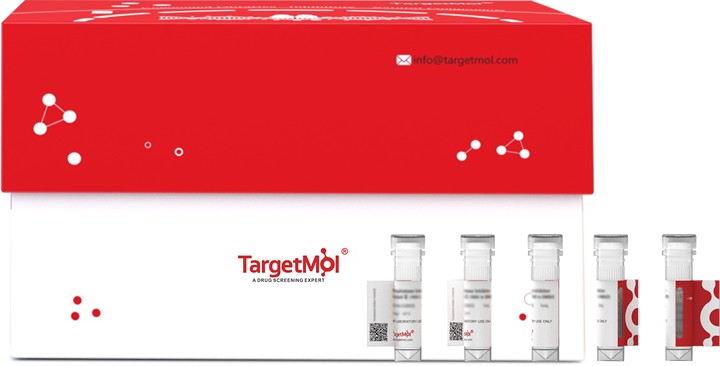- Remove All
 Your shopping cart is currently empty
Your shopping cart is currently empty
Shopping Cart
RpoH Protein, E. coli, Recombinant (His & Myc)
Catalog No. TMPH-00729
Sigma factors are initiation factors that promote the attachment of RNA polymerase to specific initiation sites and are then released. This sigma factor is involved in regulation of expression of heat shock genes. Intracellular concentration of free RpoH protein increases in response to heat shock, which causes association with RNA polymerase (RNAP) and initiation of transcription of heat shock genes, including numerous global transcriptional regulators and genes involved in maintaining membrane functionality and homeostasis. RpoH is then quickly degraded, leading to a decrease in the rate of synthesis of heat shock proteins and shut-off of the heat shock response.

RpoH Protein, E. coli, Recombinant (His & Myc)
Catalog No. TMPH-00729
Sigma factors are initiation factors that promote the attachment of RNA polymerase to specific initiation sites and are then released. This sigma factor is involved in regulation of expression of heat shock genes. Intracellular concentration of free RpoH protein increases in response to heat shock, which causes association with RNA polymerase (RNAP) and initiation of transcription of heat shock genes, including numerous global transcriptional regulators and genes involved in maintaining membrane functionality and homeostasis. RpoH is then quickly degraded, leading to a decrease in the rate of synthesis of heat shock proteins and shut-off of the heat shock response.
| Pack Size | Price | Availability | Quantity |
|---|---|---|---|
| 20 μg | $360 | 20 days | |
| 100 μg | $745 | 20 days | |
| 1 mg | $2,530 | 20 days |
Bulk & Custom
Add to Cart
Resource Download
Product Information
| Biological Activity | Activity has not been tested. It is theoretically active, but we cannot guarantee it. If you require protein activity, we recommend choosing the eukaryotic expression version first. |
| Description | Sigma factors are initiation factors that promote the attachment of RNA polymerase to specific initiation sites and are then released. This sigma factor is involved in regulation of expression of heat shock genes. Intracellular concentration of free RpoH protein increases in response to heat shock, which causes association with RNA polymerase (RNAP) and initiation of transcription of heat shock genes, including numerous global transcriptional regulators and genes involved in maintaining membrane functionality and homeostasis. RpoH is then quickly degraded, leading to a decrease in the rate of synthesis of heat shock proteins and shut-off of the heat shock response. |
| Species | E. coli |
| Expression System | E. coli |
| Tag | N-10xHis, C-Myc |
| Accession Number | P0AGB3 |
| Synonyms | rpoH,RNA polymerase sigma-32 factor,RNA polymerase sigma factor RpoH,Heat shock regulatory protein F33.4 |
| Amino Acid | MTDKMQSLALAPVGNLDSYIRAANAWPMLSADEERALAEKLHYHGDLEAAKTLILSHLRFVVHIARNYAGYGLPQADLIQEGNIGLMKAVRRFNPEVGVRLVSFAVHWIKAEIHEYVLRNWRIVKVATTKAQRKLFFNLRKTKQRLGWFNQDEVEMVARELGVTSKDVREMESRMAAQDMTFDLSSDDDSDSQPMAPVLYLQDKSSNFADGIEDDNWEEQAANRLTDAMQGLDERSQDIIRARWLDEDNKSTLQELADRYGVSAERVRQLEKNAMKKLRAAIEA |
| Construction | 1-284 aa |
| Protein Purity | > 90% as determined by SDS-PAGE. |
| Molecular Weight | 39.9 kDa (predicted) |
| Endotoxin | < 1.0 EU/μg of the protein as determined by the LAL method. |
| Formulation | Tris-based buffer, 50% glycerol |
| Reconstitution | A Certificate of Analysis (CoA) containing reconstitution instructions is included with the products. Please refer to the CoA for detailed information. |
| Stability & Storage | Lyophilized powders can be stably stored for over 12 months, while liquid products can be stored for 6-12 months at -80°C. For reconstituted protein solutions, the solution can be stored at -20°C to -80°C for at least 3 months. Please avoid multiple freeze-thaw cycles and store products in aliquots. |
| Shipping | In general, Lyophilized powders are shipping with blue ice. Solutions are shipping with dry ice. |
| Research Background | Sigma factors are initiation factors that promote the attachment of RNA polymerase to specific initiation sites and are then released. This sigma factor is involved in regulation of expression of heat shock genes. Intracellular concentration of free RpoH protein increases in response to heat shock, which causes association with RNA polymerase (RNAP) and initiation of transcription of heat shock genes, including numerous global transcriptional regulators and genes involved in maintaining membrane functionality and homeostasis. RpoH is then quickly degraded, leading to a decrease in the rate of synthesis of heat shock proteins and shut-off of the heat shock response. |
Dose Conversion
You can also refer to dose conversion for different animals. More
Calculator
Tech Support
Please read the User Guide of Recombinant Proteins for more specific information.

Copyright © 2015-2025 TargetMol Chemicals Inc. All Rights Reserved.


